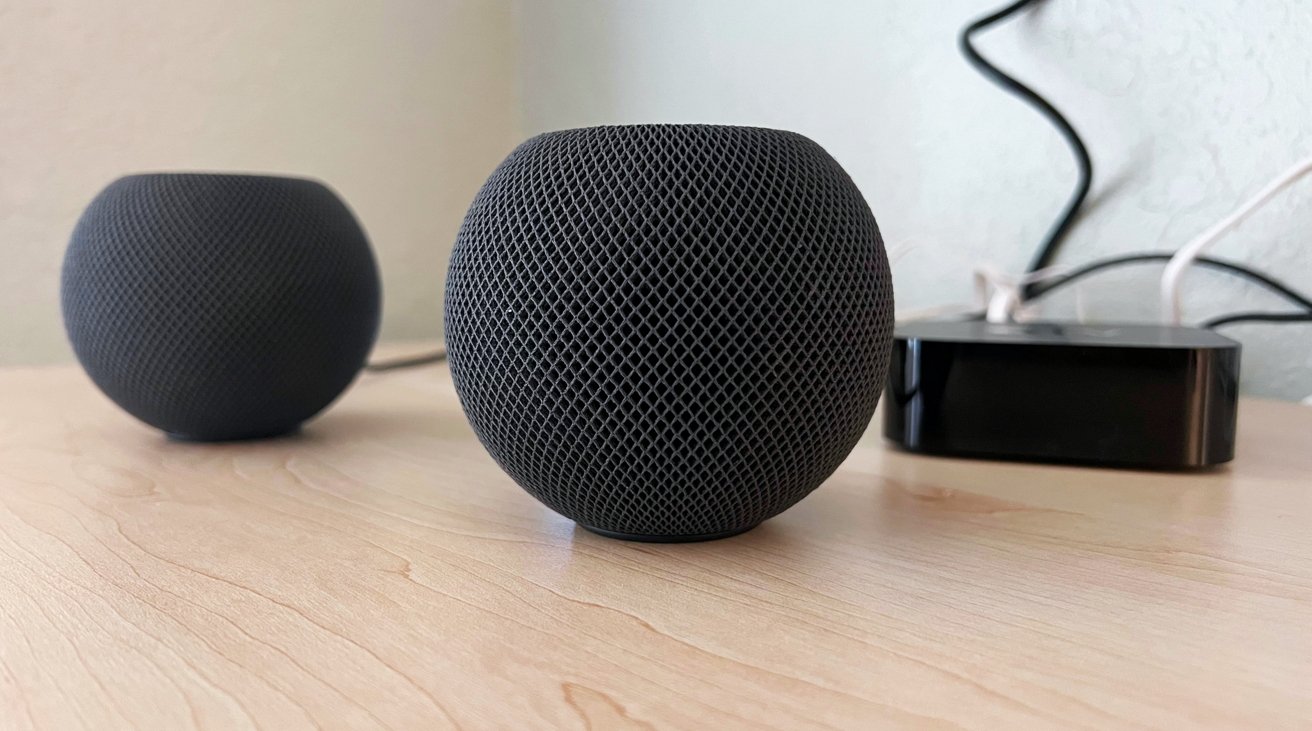Apple-designed Wi-Fi chip rumored to debut in refreshed HomePod mini & Apple TV
Rumors about the Apple TV set top box are rare, but a new one predicts that a refresh of the hardware will hit store shelves in 2025 with an Apple-designed Wi-Fi chip, alongside a new HomePod mini.

You can get HomePods and an Apple TV to connect to a hotel's Wi-Fi network.
Not much is known about new Apple TV hardware or a new HomePod mini. However a report on Thursday by Bloomberg sheds some rare light on the new gear.
There's little in the way of new features, however. The main point made by Thursday's report is the suspicion that Apple will be using its own Wi-Fi and Bluetooth chip, instead of relying on Broadcom's products.
Apple's Wi-Fi 7 and Bluetooth chip is said to be called "Proxima" internally. The report also claims that Apple has been working on it for a couple of years.
Unsurprisingly, the networking chipset is said to be on the slate for manufacturing by Apple's main foundry, TSMC.
Proxima is said to debut in the new Apple TV set-top box hardware and HomePod mini in 2025. It is rumored to eventually spill over to the iPhone 17 lineup later in the year.
This is not the first time that a shift away from Broadcom for Wi-Fi in the iPhone has been reported. Ming-Chi Kuo said in October that the shift was likely to happen in 2025 for the iPhone 17.
The new modem is not expected to hit the Mac until 2026.
The latest step in a long migration away from supplier dependency
The shift appears to be another allowing Apple to stop buying chips from other suppliers. Apple Silicon as a whole is an obvious example.
Also, the company has long-rumored to be working on its own cellular modem for the iPhone, another move away from third-party suppliers. That is expected to debut in 2025's iPhone SE first.
Apple and Qualcomm extended a global patent license agreement by two years, incorporating modem and Wi-Fi technologies. The extension and a contract for the use of Snapdragon 5G Modem-RF systems will terminate in March 2027.
If Apple can get its modem and Wi-Fi chip project to a state equivalent to Broadcom's offerings, it won't need to extend that contract and rely on that supplier for modems beyond 2027. This has been Apple's goal for a long time, with the largest move being the transition to Apple Silicon.
And, from 2016 to 2023, the two firms were embroiled in a Wi-Fi patent dispute with Caltech. The move to Apple-designed chips could put further distance between the iPhone maker and Caltech.
However, if another recent rumor is to be believed, Apple's reliance on Broadcom may not be cut to zero. Apple is said to be working with Broadcom on AI server chips. Apple presently uses the M2 chip in server farms for Apple Intelligence work, with rumors suggesting the M4 will supplant it soon.
Read on AppleInsider

Comments
This is what I thought the OG HomePods would have, to pick up the WiFi mantle as the Airport line was rumored to be headed out the door. Futher thought led me to think routers in HomePods probably isn't a great idea, because ideal placement for mesh routers does not necessarily overlap with ideal placement of HomePods for listening to music. Routers need to go where the relaying of radio signals is optimized, and speakers where listening is optimized.
Anyway, Apple's emphasis on security and privacy would be much better served if they reinstated a new generation of in-house mesh routers. I'd be a lot happier if the digital gateway into my home was managed by Apple devices. Plus, they left a huge hole where time capsule routers used to be. In fact, I still have two of them with the wifi turned off and plugged in via ethernet to other-brand mesh routers in order for them to continue as redundant NAS devices for Time Machine backups.
WiFi has too much latency for various use cases.
https://www.cdebyte.com/news/820#
A move back into the AirPort line of products but with advanced mesh/soft bus capabilities would be the way to go.
Eero is $1700 retail and $1300 with a discount for a 3 mesh system. I pay even more for my UniFi equipment.
If Apple does come back to the router market I hope they allow for advanced configuration as an option. One reason I left them before they left the market is their decision to keep locking out advanced features from users that had been their since the beginning.